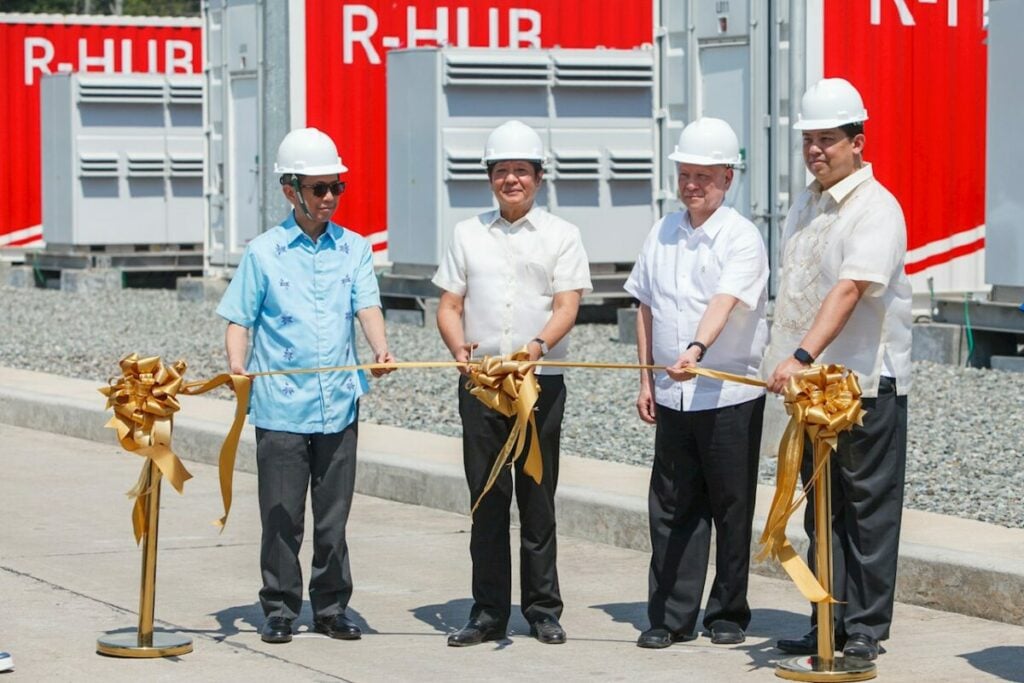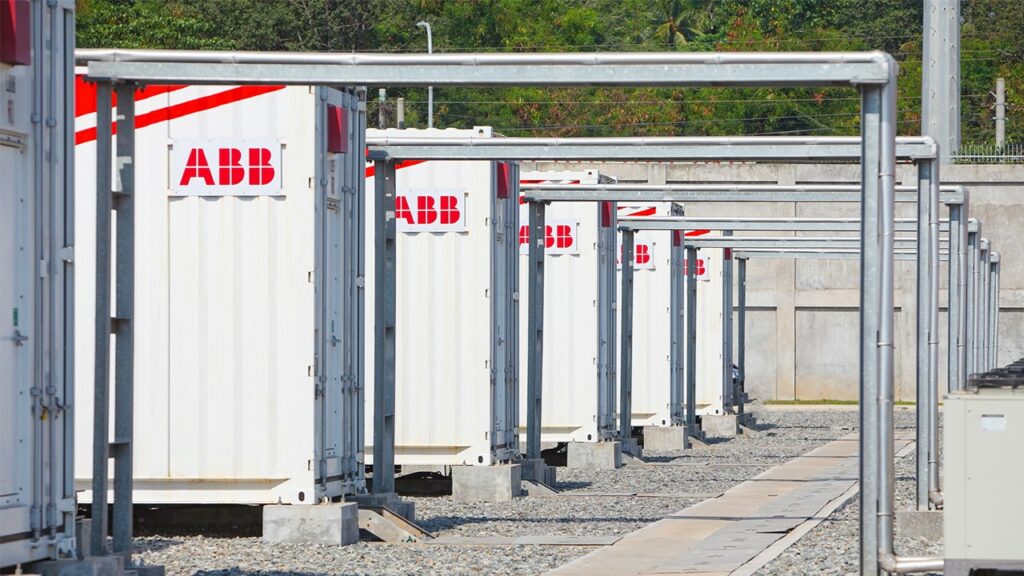
The Philippines has turned its focus onto transitioning its energy sector to larger shares of renewable energy. Carlos Nieto of ABB writes about how the company delivered a 60MW battery storage project in alignment with that aim.
It is easy to see why the energy transition has become such a huge priority for the Philippines. Historically, like many regions in Southeast Asia, the country’s energy mix has been largely reliant on fossil fuels due to their low cost.
Enjoy 12 months of exclusive analysis
- Regular insight and analysis of the industry’s biggest developments
- In-depth interviews with the industry’s leading figures
- Annual digital subscription to the PV Tech Power journal
- Discounts on Solar Media’s portfolio of events, in-person and virtual
In fact, as of 2018, it was estimated that fossil fuels such as coal and gas still accounted for approximately 77% of the Philippines’ total electrical energy needs. More so, a growing economy and rising population have resulted in an increased dependence on imported coal in recent years.
Inevitably then, like many other countries, the evolving energy crisis has been quick to expose the vulnerabilities associated with its inherent fossil fuel dependence. This is seen as escalating energy prices continue to push the Philippines, along with other developing countries, out of the market and threaten the energy security of millions of its people and its economy.
The result is a renewed strategic focus by the Philippines government to transition to clean energy sources, not just to meet its sustainability targets but to support its broader economy and the communities it serves.
A main renewable energy producer
To address this while accelerating its net zero goals, the Philippines is set to become the main renewable energy producer in Southeast Asia, thanks to an ambitious plan designed to achieve 35% renewable energy generation by 2030 and 50% by 2040.
Philippine President Ferdinand R. Marcos Jr. claims that his administration will focus on developing renewable energy to pursue energy security.
But while certainly positive, this transition will present many challenges – principally, in terms of how to integrate these new energy producers into the existing grid.
This is because the majority of the Philippines’ existing grid structure is decades old and was only ever designed to deal with a steady, reliable supply of energy under the assumption that the amount of energy fed into the grid is always equal to the amount consumed.
The inherent variability of wind and solar, including potential imbalances in supply and demand and changes in transmission flow patterns, make balancing the grid problematic. Without some form of backup, utilities run the risk of instability or even a blackout.
At the same time, the Philippines, as with most island nations, is exposed to an increasingly unpredictable tropical climate, where it is common to experience extremely hot periods followed by sustained rain. This can make the invariability of renewable generation an even greater challenge.

So, the big question is – how can the Philippines integrate renewables to help cut emissions, future-proof and, perhaps, most importantly, build energy security?
Battery energy storage
Battery energy storage systems (BESS) hold part of the answer.
Of course, most operators will already be well educated as to the benefits of storing excess energy and redeploying it when the sun isn’t shining, or the wind isn’t blowing to balance the grid and ensure constant reliability. But the benefits afforded by BESS for nations such as the Philippines go far beyond this.
A great example of this can be found at Limay in Bataan Province, where one of the largest-ever integrated grid-scale BESS has been installed to support the integration of renewable energy sources for Universal Power Solutions Inc (UPSI).
To achieve this, ABB provided a 60MW capacity packaged BESS solution purposely designed to strengthen the reliability and stability of the grid on the main island of Luzon.
The solution, which is currently operating at 50MW, is designed to avoid large frequency and voltage deviations that can result in costly equipment damage and disruptive power system failure.
The result is that the daily shifts in supply and demand, no matter how extreme the terrain’s changeable climate may be, can be balanced easily and instantly managed by simply adding a battery to the grid or charging it.
This will play a significant role in not just enabling energy security but making sure every single kW of self-generated capacity is optimised to enable cheaper energy prices for residents. More so, it will allow operators to be much more tactical about the way they use the renewable energy they generate by leveraging peak shaving and load-lifting to reduce costs further.
Importantly too, it can help build a new layer of resilience whereby utilities are able to save money by timing their ‘buys’ and ‘sells’ when market conditions are optimal.
From our experiences, we believe this innovation is a critical component of local resilience and must play a lead role in enabling power system operators to make the most of renewable investments and improve access to sustainable, reliable, secure, sufficient, and cost-effective energy.
Full potential
As energy market volatility, economic uncertainty and climatic extremes continue to take their toll, it’s clear that the Philippines’ energy transition need is an urgent one. By taking heed of the latest BESS technologies, the good news is that it becomes possible to secure energy dependence by unlocking the full potential of the power of renewables.
Energy-Storage.news’ publisher Solar Media will host the 1st Energy Storage Summit Asia, 11-12 July 2023 in Singapore. The event will help give clarity on this nascent, yet quickly growing market, bringing together a community of credible independent generators, policymakers, banks, funds, off-takers and technology providers. For more information, go to the website.
About the Author
Carlos is the global product line manager for energy storage at global technology company ABB. Carlos has been working for ABB for more than 9 years and previously he was a researcher in the Carlos III University of Madrid where he coursed a Ph.D and M.Sc in Electrical, Electronics and Automation Engineering and a B.Sc in Electrical Engineering.

